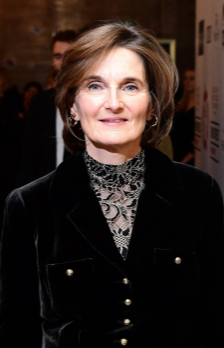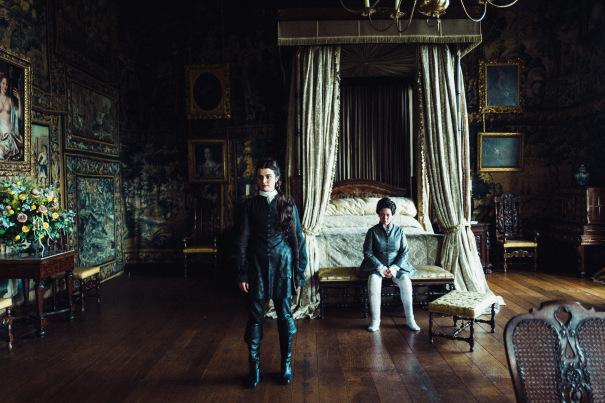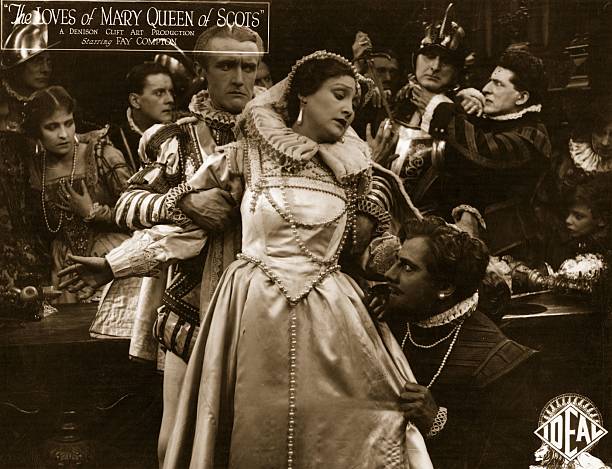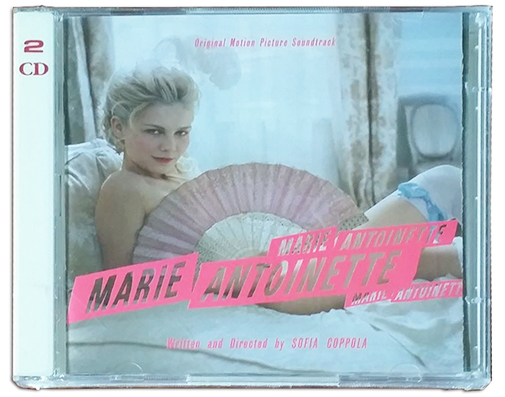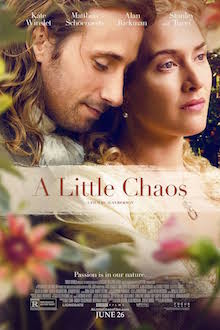 With "A Little Chaos" opening tomorrow, abstew looks back at Kate in corsets. - Editor
With "A Little Chaos" opening tomorrow, abstew looks back at Kate in corsets. - Editor
Oscar winner Kate Winslet returns to the screen tomorrow in A Little Chaos (in select theaters and available on VOD). It's a fictionalized story of how the elaborately lush gardens at the Palace of Versailles were constructed for King Louis XIV. The film is a reunion for Winslet and Alan Rickman (who stars as Louis and also directed the film), who haven't worked together in 20 years. But more importantly, the film reunites Winslet with the corset, getting laced-up again for the first time since 2004's Finding Neverland. For the first few years of her career, Winslet only appeared in period pieces (it wasn't until 1999's Holy Smoke! that she finally starred in a film set in modern-day) so it's time to look back on three of her best performances in those waist-cinching garments! (For purposes of this list, I decided to not include her 1950s set films - a girdle just isn't the same...)
Sense and Sensibility (1995)
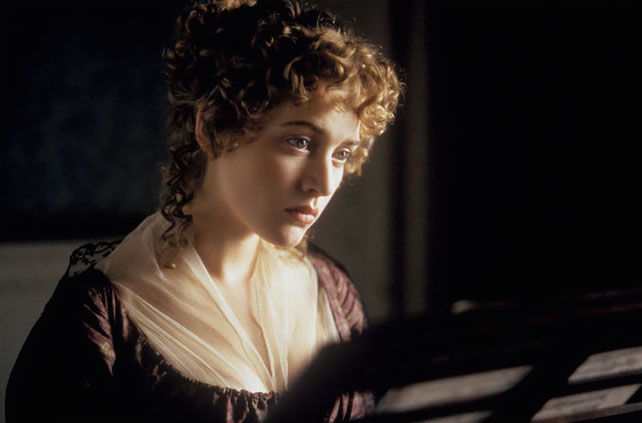
Proving that the period piece was a good fit from the start, Winslet's first Oscar nomination came for her wildly romantic turn as Marianne Dashwood in the Best Picture nominated adaptation of Jane Austen's first published novel, Sense and Sensibility. But director Ang Lee had to be convinced that Winlset was the right actress for the role as he hadn't cared for her film debut in 1994's Heavenly Creatures. And even after casting her in the role, on the first day of filming, he was unimpressed with her work, telling her that she'll have to be better. The criticism must have lit a fire under her because Winslet completely throws herself into the role with determination and gusto. Her Marianne is all bleeding heart that she pins tellingly on her sleeve for the world to see. Incapable of hiding her turbulent emotions, she allows herself to be ruled by love. And Winslet plays her without judgement of her impulsive nature, embracing Marianne's romanticism and temperament. But even the strongest wildfire can't blaze brightly forever. In the most heartbreaking scene of the film, Marianne's passionate ideals are extinguished as she walks across the moors to gaze upon the home of the man that has abandoned her. Influenced by her devotion to poems and romance novels (as preparation, Winslet read and studied works of the period to achieve Marianne's mindset), she is willing to die for her dreams of love. But instead of death, Marianne experiences a rebirth, allowing herself some of her sister's practical reasoning. Able to look at things with a little more understanding. Marianne's transformation could very easily feel like the character has become defeated, but what Winslet does beautifully is bring Marianne a newfound maturity without losing the spark that makes her still believe in the possibility of love.
Jude (1996)
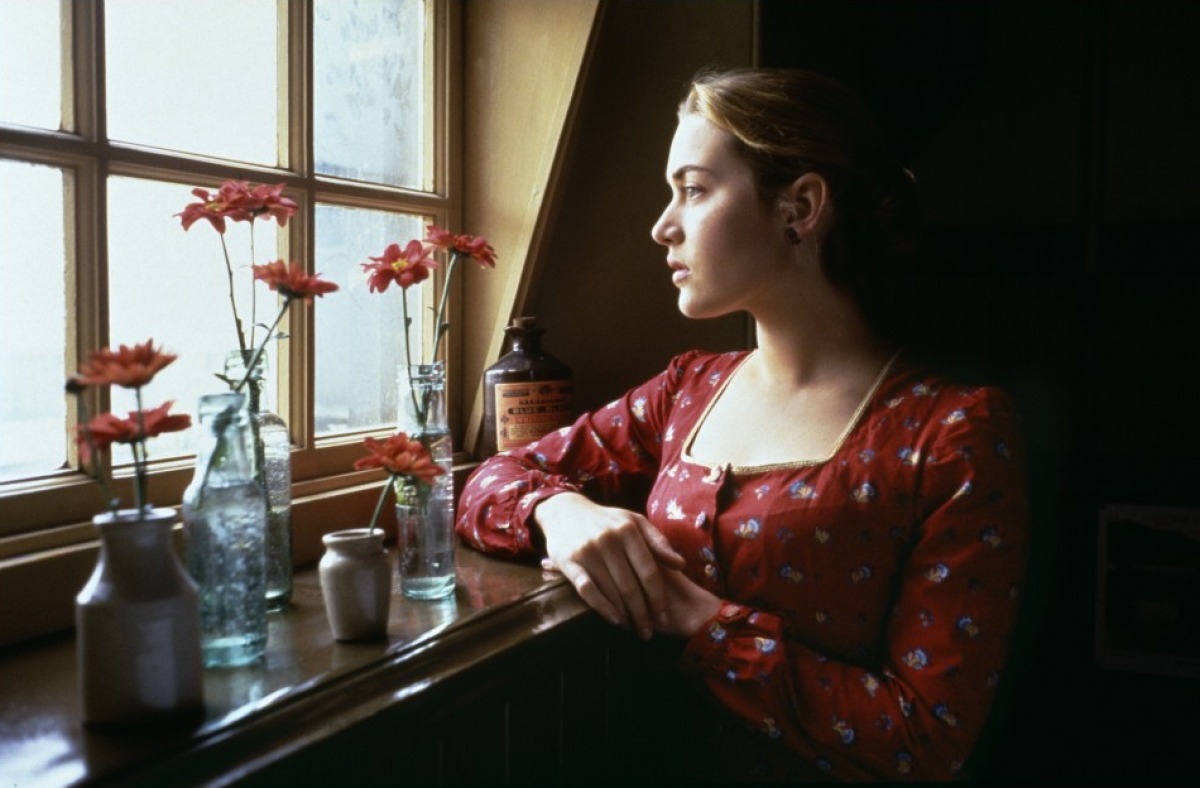
In this little-seen, but devastating film, Winslet gives one her most complex performances as Sue Bridehead, an independent and headstrong woman in late 1800's England. As the tragic events unfold in Michael Winterbottom's adaptation of Thomas Hardy's controversial novel Jude the Obscure, Winslet's magnetic star-turn saves it from becoming a dreary slog. Her early scenes with Christopher Eccelston's Jude, as they begin to get acquainted, have an easy playfulness, especially in a flirty pub scene in which Sue smokes and drinks beer with the bar patrons. It's reminiscent of Winslet's below-deck escapades in Titanic but the scene here plays earthier and sexier, as Winslet seems more relaxed and natural than she ever does as Rose. And the two actors have wonderful chemistry together, willing us to want their characters to eventually get together despite the fact that they are cousins and already married to other people. Unfortunately Sue's constant need to defy convention, her refusal to comform to the standards of Victorian society, becomes their ultimate undoing. No spoilers here, but the tragic incident hits you like a gut-punch. For most of the harrowing scene, Winslet is silent and still, completely numb to pain. It's in the scene directly after that we get our catharsis as she lies facedown on the ground, twisting her body as she lets out animalistic howls of despair. We are no longer watching an actress give a performance, but viscerally feeling the character's bottomless grief.
Hamlet (1996)

In a part that has been played on film by Jean Simmons, Marianne Faithful, and Helena Bonham Carter, the definitive screen version of Shakespeare's ill-fated heroine Ophelia, has to be Kate Winslet. In Kenneth Branagh's unabridged, 4-hour version featuring such esteemed thespians as Derek Jacobi, Julie Christie, Richard Attenborough, Judi Dench, and John Gielgud, it is Winslet that emerges as the film's most memorable player. And it's all the more impressive because, unlike most British actors, Winslet never trained in the classics. Later she even turned down an offer to appear in Sam Mendes' The Bridge Project, performing in Twelfth Night and Uncle Vanya, because she didn't feel like she could tackle them properly. It's surprising because on film, Winslet is an actress never afraid of a challenge and her Ophelia works precisely because of that fearlessness. This is an Ophelia not afraid of her sexuality, a young woman discovering the harsh realities of men's actions and what it means to give yourself to someone. Winslet endows her with womanly understanding while still maintaining the fragility that leads to her downfall. Ophelia is definitely a showy part with its descent into madness, but instead of being overly theatrical or studied, Winslet plays those scenes manic and unhinged, surprising us with bold execution and raw modernity. Which is not to say she's incapable of delivering Shakespeare's language the way it is intended. It's just that she's not slavishly devoted to it, more concerned with capturing Ophelia's state of mind and allowing the text itself to feed her emotions. In a 400-year-old play, the most often produced of all of Shakespeare's work, Winslet interpretation helps you feel like you're witnessing it for the first time.

Do you agree with these three choices as Kate's best work in a corset? If not, what's your preference?
 Wednesday, June 19, 2019 at 1:00PM
Wednesday, June 19, 2019 at 1:00PM 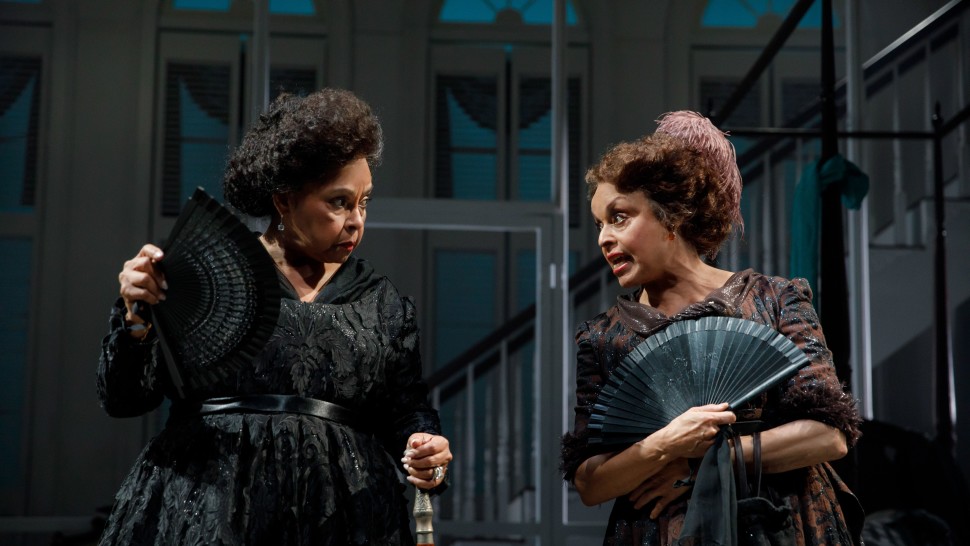 Lynda Gravatt as the widowed matriarch of "The House That Will Not Stand" and her rival played by Marie Thomas
Lynda Gravatt as the widowed matriarch of "The House That Will Not Stand" and her rival played by Marie Thomas


